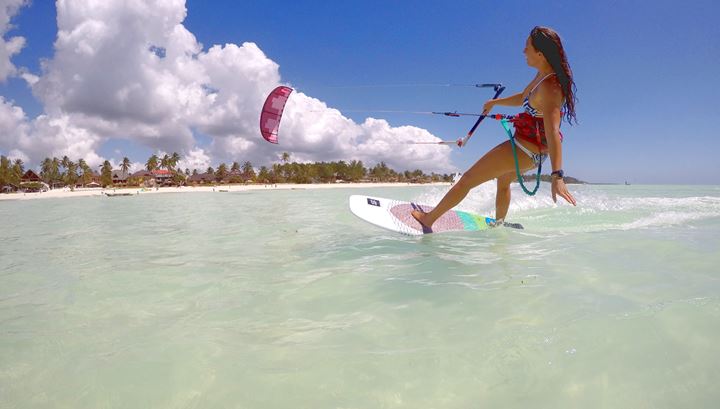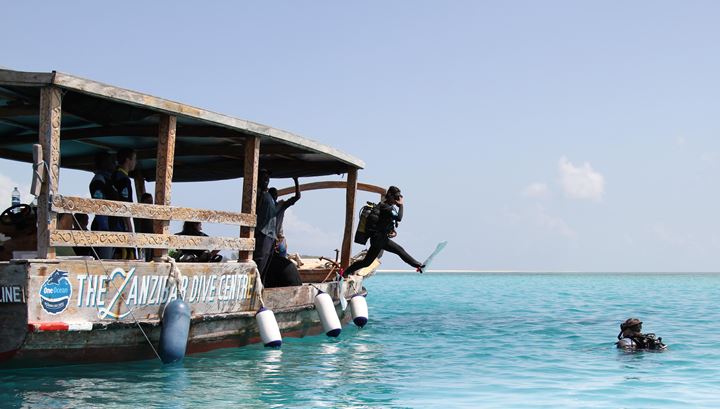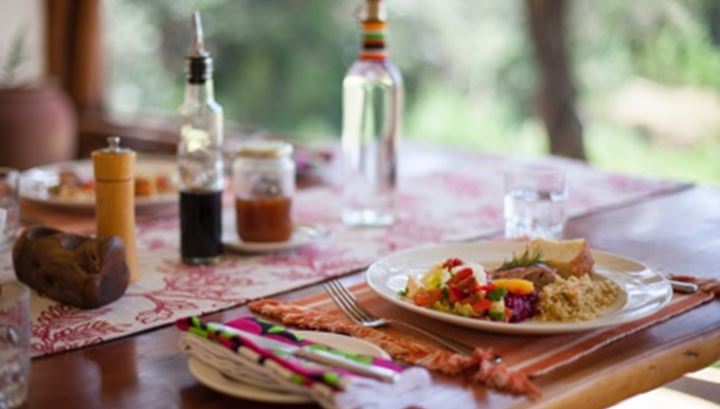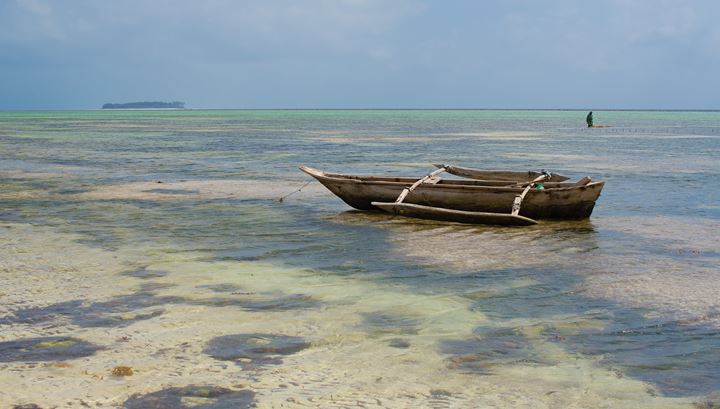Travel guide
Zanzibar isn’t just about the beaches, though that’s a major part of the appeal. But there’s much more to see and do on this Indian Ocean island chain. Here are just some of the highlights, wildlife to look out for, a guide to culture and cuisine and some useful travel tips.
Highlights
The reefs around Mafia Island, Pemba and Mnemba Atoll are brilliant places to go snorkelling or diving. There are plenty of other ways to get out on the ocean: kayaking, fishing or kitesurfing, for example. Don’t miss a romantic sundowner cruise on a traditional dhow boat. On the island, a visit to Stone Town is a must. Learn about the region’s long history on a tour along the narrow, winding lanes, around the Old Fort and through thrumming markets. Then of course, you must take advantage of Zanzibar’s ace card: it’s idyllic beaches and (almost) year-round hot, sunny weather. Put your feet up with a good book, a cold drink and relax.

Wildlife
The waters surrounding Zanzibar are rich with marine life. Pull on a mask and dive into the underwater world to see hawksbill turtles gliding through the water, pods of playful bottlenose dolphins, white-tip reef sharks, trumpetfish, blue-spotted rays, dugongs, nudibranchs and much more. From July to October, migrating humpback whales pass the islands. On land, there’s plenty to see, too. Take a walk through Jozani Forest to spot the Zanzibar red colobus monkey. The small blue duiker, suni antelope, bush-tailed mongoose and the African and small Indian civet, as well as around 240 species of birds can also be seen on the islands.

Culture
Zanzibar is very different from mainland Tanzania. It’s a predominantly Muslim region, a religious community that dates back to the Arabic traders who arrived in the 8th century. Most people consider themselves Zanzibari rather than Tanzanian. Arabic is spoken alongside Kiswahili and English.
Cuisine
As you might expect for such a cultural melting pot, there’s a blend of cuisines in Zanzibar. From fresh prawns grilled on the barbecue to octopus curry, seafood is a staple ingredient. Indian dishes such as biryani and pilau are common, as well as Swahili curries, featuring fish and coconut chutney. Some quirky Zanzibari specialities include their version of pizza, similar to a calzone full of vegetables and/or meat, cheese, mayonnaise and egg, and urojo, a spiced coconut broth with potatoes, bhajias and crispy noodles, topped with an array of garnishes including boiled eggs, meat, cassava chips and hot chutney (and often more). At hotels, such as Asilia’s Matemwe properties, guests can sample some of the local cuisine as well as international dishes you may be missing from home.

General Travel Tips
• Besides English and Kiswahili, many people in Zanzibar speak Arabic. • The currency is the same as the mainland, the Tanzanian shilling. • Learn some Swahili, such as ‘Jambo’ and remember to greet people before starting a conversation, even if you just have a quick question. • Make sure you ask permission before filming or photographing anyone. • Almost all residents are Muslim. This means you should dress modestly in towns and villages, covering your shoulders and knees. This is especially important if you plan to visit any mosques. On the beach and in resorts, it’s fine to wear shorts, t-shirts and beachwear. • Ask permission before entering a mosque and remember to remove your shoes first.







